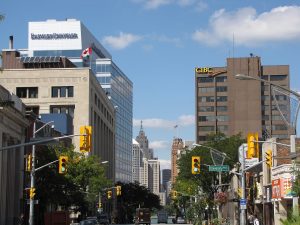Purchasing rental properties might be a fantastic method to amass passive income and financial security. However, it takes careful preparation and execution, just like any other investment, if you want to see results. To help readers increase their profits and reduce their losses, I’ve compiled a list of the five most important things to consider when investing in rental properties.
Where, Where, Where?
When deciding where to put your money in rental properties, location is crucial. When it comes to rental income and property value, location may make all the difference. Consider the property’s closeness to amenities like work, education, transit, shopping, and recreation before making your decision. Think on how secure and appealing the area is as a whole. It may be more challenging to find tenants for and see appreciation in a property situated in an area with high crime rates, bad school districts, or a lack of amenities.
The Art of Mathematics
Real estate investors need to have a firm grasp of financial parameters like cash flow, net operating income (NOI), cap rate, and return on investment (ROI) before putting their money into rental properties. Check the property’s revenue potential and costs to see whether it’s a good investment before making an offer. A complete evaluation of rental revenue, operating costs, vacancy rates, property taxes, and the need for repairs or improvements should be part of this process. Aim for a cap rate of 5-7% and a cash-on-cash return of 10% as a general guideline. These figures, however, may change based on factors like geography and the kind of property being compared.
Carefully Vet Potential Tenants
A rental property’s profitability is directly tied to the calibre of the tenants that inhabit it. Tenants that create problems, whether via nonpayment of rent, destruction of property, or litigation, may be a major headache for landlords. Therefore, it is crucial to thoroughly investigate potential renters. This should include a complete credit and background check, as well as landlord references. The time spent thoroughly vetting prospective renters may seem like a waste at first, but it may end up saving you a lot of money, stress, and trouble in the long run.
Take Care of the Property
Investors in rental homes often make the mistake of putting off necessary upkeep. In addition to lowering rental revenue and property value, putting off critical repairs and renovations might lead to higher maintenance costs in the future. Cleaning, landscaping, and fixing anything that’s broken or damaged should all fall within the purview of regular maintenance. It is also crucial to maintain any modifications that have become essential, such as the replacement of old appliances, the modernization of electrical and plumbing systems, and the enhancement of energy efficiency. You can keep your home valuable and appealing to renters by spending money on regular upkeep.
Make Sure You Have a Good Lease
Last but not least, a well-drafted lease agreement that safeguards your interests as a landlord is crucial. Rent, deposits, late fines, property usage, and maintenance obligations should all be spelt down in detail. The lease should also include the steps to be taken in the event of a breach, such as eviction or legal action. A well-written lease agreement will help you and your renters avoid future disagreements over who is responsible for what.
Last but not least, buying rental property might be a great method to make money without doing anything. To be successful, though, meticulous preparation and execution are essential. Investors in rental properties may reduce their exposure to risk and improve their returns by paying close attention to factors including location, financial measures, tenant screening, property upkeep, and lease terms.






